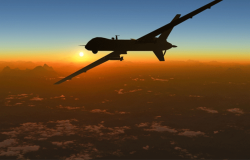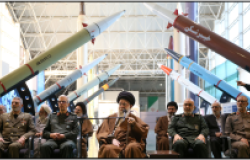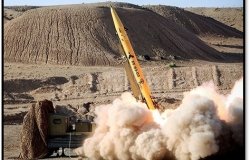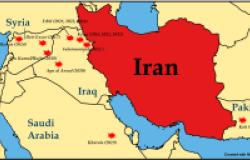Pakistan's Sectarian Meltdown
Stability is Washington’s core interest in nuclear-armed, volatile Pakistan. This is why it agonizes over the Pakistani Taliban’s (TTP) vicious campaign of anti-state terror. Yet, it’s arguably sectarian violence that poses the greatest threat to Pakistan’s long-term stability, writes Michael Kugelman in The National Interest.
Last month, militants murdered [3] nine foreign mountain climbers at a base camp on Pakistan’s Nanga Parbat peak.
Many observers noted that it was the first attack of its kind. But in fact, one aspect of the attack—which received little news coverage—was depressingly familiar.
This is because there was a tenth casualty—a Pakistani porter named Ali Hussain [4]. He was a Shia Muslim—a religious minority making up about 20 percent of Pakistan’s Sunni-majority population. Officials believe he was targeted because of his faith, and for good reason: At least four Sunni Muslims were reportedly also at the camp, and their lives were spared.
Sectarian strife is most often associated with the Middle East, but Pakistan is rapidly becoming one of its deadliest new fronts.
According to estimates, roughly four hundred Pakistani Shias were killed in sectarian violence last year [5]—the highest number since the 1990s. There were more than five hundred overall deaths from sectarian strife in 2012, more than double the 2011 figure. A new U.S. Commission on International Religious Freedom report [6] concludes that large numbers of attacks have targeted Pakistani religious communities over the last eighteen months. Shias and other minority communities are assaulted in their homes, at their centers of worship, in recreation centers and on public buses. In 2011, Pakistan’s minority-affairs minister, a Christian, was gunned down [7] in his car in broad daylight.
Stability is Washington’s core interest in nuclear-armed, volatile Pakistan. This is why it agonizes over the Pakistani Taliban’s (TTP) vicious campaign of anti-state terror, and obsesses about the possibility of another military coup, a radical Islamist takeover, or nuclear weapons falling into extremist hands. Yet it’s arguably sectarian violence that poses the greatest threat to Pakistan’s long-term stability.
About the Author


Indo-Pacific Program
The Indo-Pacific Program promotes policy debate and intellectual discussions on US interests in the Asia-Pacific as well as political, economic, security, and social issues relating to the world’s most populous and economically dynamic region. Read more










